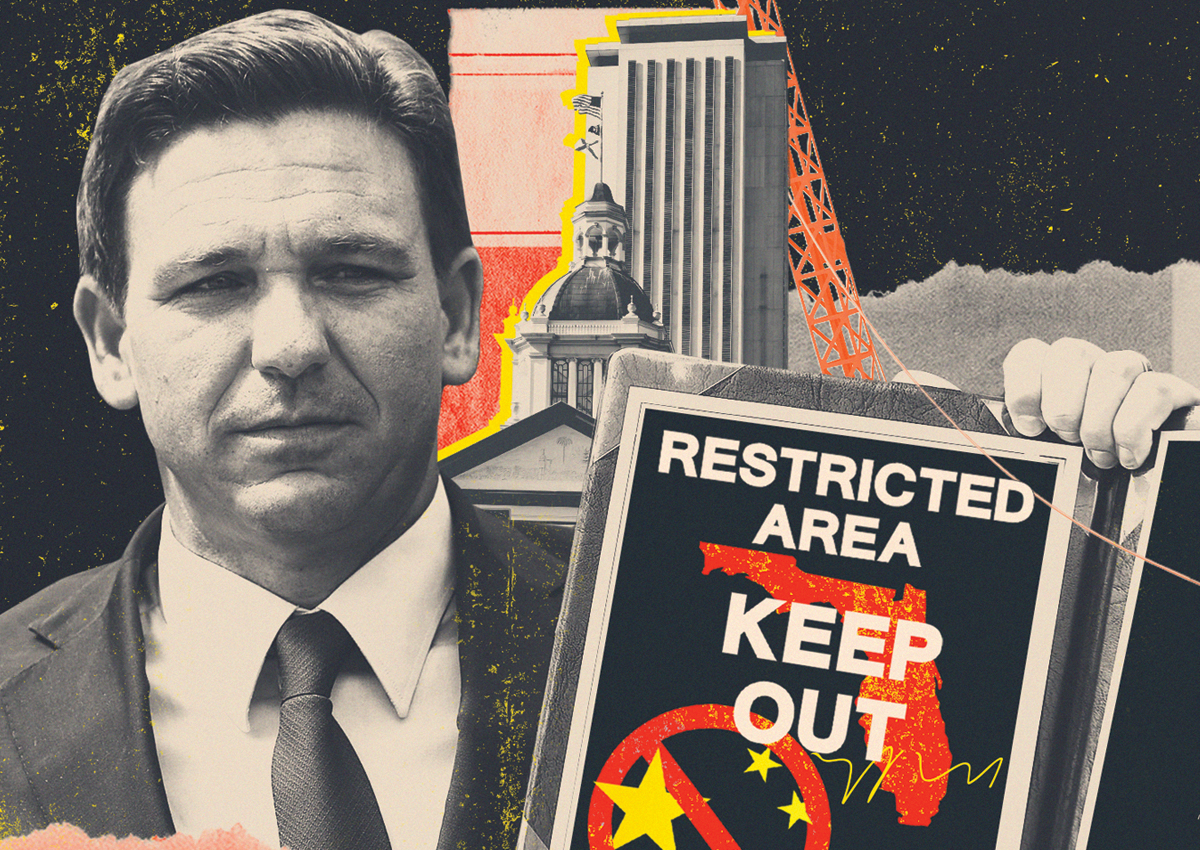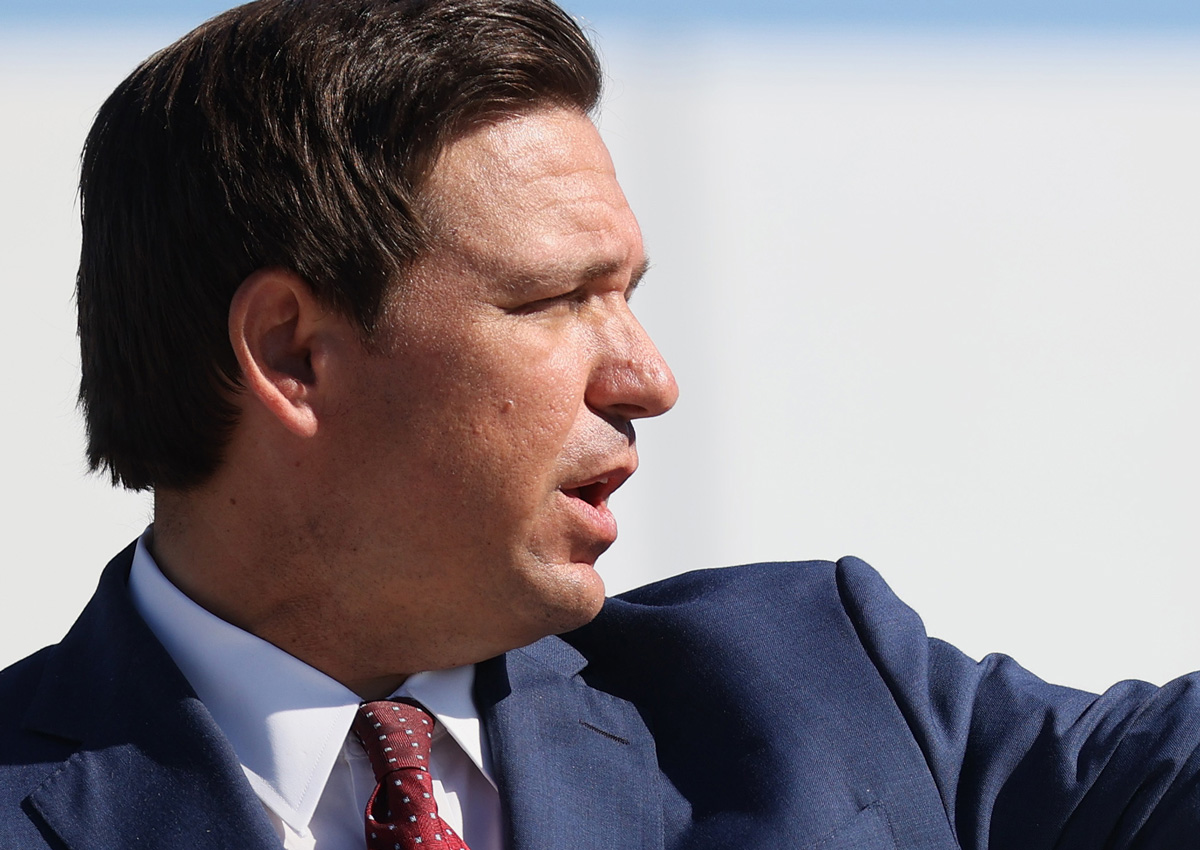Lawmakers voted on a number of real estate-related bills this legislative session that Gov. Ron DeSantis signed or is expected to sign into law.
The session ended on Friday. One pair of bills that would have allowed the demolitions of properties in historic districts across coastal cities died in the Florida House last week, as legislators wrapped up the busy session.
Here’s a look at what passed and what did not:
SB 102 | Affordable housing | Status: Signed into law
DeSantis has already signed into law a landmark housing bill that incentivizes developers to build affordable and workforce housing, sets aside more than $700 million in funding and supersedes local zoning rules. It goes into effect July 1. Read more about the bill here.
HB 1355/SB 264 | Restricting foreign investment in real estate | Status: signed into law
DeSantis also signed sister bills restricting foreign investment in Florida real estate from China, Venezuela, Cuba, Russia, Iran, Korea and Syria. The law bans real estate purchases by Chinese people and businesses domiciled in China and those who are not U.S. citizens or residents. Those who currently own real estate and fall under those parameters must register their ownership with the state, which critics of the legislation compared to Nazi Germany.
Foreign investors from the other “countries of concern,” including Venezuela and Cuba, are banned from buying agricultural land in the state, as well as real estate within 10 miles of military and critical infrastructure facilities. The latter includes seaports, airports, chemical manufacturing facilities, electrical power plants, water treatment plants and gas plants. The law lays out punishments for those who knowingly sell such real estate to people or entities from those countries.
One exception that was later added to the bill: A foreign national with a non-tourist visa could purchase one residential property of up to 2 acres if the property is not on or within five miles of a military installation.
Real estate brokers have called the restrictions “discriminatory.” The law will likely hurt the foreign buyer condo market in South Florida for any properties within 10 miles of airports, in particular. It’s also expected to ban parents of Chinese students attending Florida colleges and universities from buying condos or homes for their children.
SB 154 | Condo associations | Status: Passed, waiting for governor’s signature
Florida lawmakers made changes to a bill that aims to clarify aspects of the condo safety law passed last year, in the wake of the deadly Surfside condo collapse. Last year’s law resulted in condo association boards scrambling to meet looming deadlines for financial and structural repairs.
This bill gives local municipalities some authority in enforcement, and limits the “milestone” inspection requirements for residential condominium or cooperative buildings. It also makes it easier for boards to pass larger budgets without requiring a special meeting, by allowing associations to exclude key items — including the funding of reserves and insurance premium hikes — from the maximum budget increase, said attorney Darci Cohen, a partner at Miami-based Mark Migdal & Hayden.
The condo safety law signed in 2022 eliminated associations’ ability to waive the funding of their reserves, giving them until the end of 2024 to raise their monthly dues or enact special assessments to fully fund reserves, if needed, by the start of 2025. It requires buildings to have an architect or engineer complete structural integrity reserve studies, which will then determine how much a building has to have in its reserves.
SB 1114/HB 919 | HOA Oversight | Status: Passed, waiting for governor’s signature
Lawmakers approved a bill strengthening oversight on homeowners association boards, although legislators removed key provisions included in the original proposal. The bills were created in response to the alleged $3 million fraud at the Hammocks HOA, a sprawling residential community in Kendall.
The Homeowners Associations Bill of Rights, which heads to DeSantis next, provides that an HOA officer, director or manager would face monetary damages if they knowingly solicit or accept kickbacks, although the final version of the legislation makes no mention of potential civil and criminal penalties included in earlier versions. Also, the bill makes it a first degree misdemeanor to aid fraudulent election voting, including tampering with ballots and using bribes or threats to secure votes.
The law would take effect on Oct. 1.
The approved bill does mandate the removal of an HOA officer from the post if they are charged with board elections fraud, with theft or embezzlement of association funds, or with the destruction or refusal to provide official HOA records upon a resident’s request. In addition, the bill ramps up disclosure requirements.
The final bill removed the language touted in March that said that all resident complaints against a board over refusal to provide financial records, election fraud or accepting kickbacks will be forwarded to the Florida Department of Law Enforcement.
As it stands now, residents can file a civil suit against a board or bring a complaint to the Florida Department of Business and Professional Regulation.
SB 540/HB 359 | Challenging local approvals | Status: Passed, waiting for governor’s signature
Florida lawmakers advanced a measure that requires anyone who sues local governments over development approvals pay the municipalities’ legal fees if those suing lose. The proposed law is awaiting DeSantis’ signature. It’s expected to discourage development approval challenges.
A separate set of bills would have required that the winner in such lawsuits show the challenge was “frivolous” before the prevailing party could recover their legal fees from the opposing side. The Senate version of that bill, Senate Bill 816, died last week.
SB 1356/HB 1317 | Demolitions | Status: Dead
The legislation would have stripped local municipalities of their authority to determine if buildings and other structures could be demolished, and what could be built in their place if knocked down. The proposed law was expected to fuel a rash of speculative property sales and subsequent demolitions of historic buildings in coastal cities such as Miami Beach and Palm Beach.
Developers were believed to be behind the bills, which were sponsored by Sen. Bryan Avila and Rep. Spencer Roach. The legislation, which exempted single-family homes, would have allowed owners and developers to demolish “non-conforming” properties within a half mile of the coast and within specific flood zones — regardless of whether the buildings are in a historic district.
Haber Law attorney David Podein said the bill was another example of “tension between local control over real estate and more top-down mandates” from the state.
Lidia Dinkova contributed reporting.
Read more



